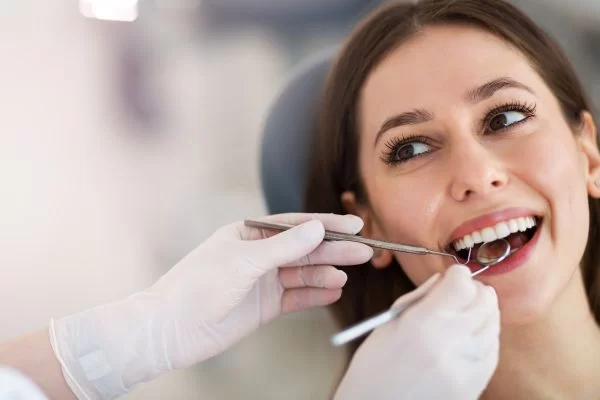
How to Keep Your Gums Healthy as You Age: Essential Tips for Seniors
As we grow older, our bodies go through various changes, and our oral health is no exception. I’ve personally witnessed how difficult it can be to maintain healthy gums as we age, especially when the challenges of gum disease and tooth sensitivity increase. But after learning a few key tips and adjusting my dental routine, I’ve been able to keep my gums healthy well into my senior years. Today, I want to share some valuable dental care tips that can help you maintain healthy gums and prevent common dental problems that many seniors face.
1. Prioritize Daily Brushing with the Right Tools
Brushing your teeth is the most basic yet crucial part of gum care. When I first started facing dental issues in my 60s, I underestimated the importance of using the right tools. Regular brushing not only keeps your teeth clean but also massages your gums, which is essential for good gum health. However, as we get older, our gums can become more sensitive, so it’s vital to use a toothbrush that’s gentle on your gums.
I recommend switching to a soft-bristled toothbrush to avoid irritation, especially if you already have receding gums. In addition, you may want to consider using an electric toothbrush, as it provides a more consistent brushing motion and can help ensure a more thorough clean. I noticed that using an electric toothbrush helped me reach areas I might have missed with a manual brush. Be sure to brush your teeth at least twice a day and spend at least two minutes brushing each time to ensure you’re doing it right.
2. Floss Regularly to Remove Plaque and Food Particles
Flossing is another simple yet effective way to maintain gum health. I admit, for years I wasn’t as consistent with flossing as I should have been. But as I got older, I started to realize that plaque buildup between my teeth was contributing to gum inflammation. I decided to make flossing a daily habit, and the results have been remarkable. Regular flossing helps remove plaque and food particles that can get stuck between your teeth and gums, preventing gum disease like gingivitis and periodontitis.
If you find traditional flossing difficult or painful, consider using floss picks or an interdental brush, which are easier on the gums. Some seniors also opt for water flossers, which can be gentler and more effective for people with braces, dentures, or sensitive gums. No matter what tool you use, flossing is a key part of your daily oral hygiene routine and should never be overlooked.
3. Use Antibacterial Mouthwash to Reduce Plaque
Even after brushing and flossing, there can still be bacteria lingering in your mouth. That’s why I started using an antibacterial mouthwash as part of my daily routine. Mouthwash not only freshens your breath but also helps to reduce plaque buildup, which can lead to gum disease. Many mouthwashes on the market are specifically designed to fight plaque and bacteria, which is especially helpful as we age and our immune systems aren’t as robust as they used to be.
When choosing a mouthwash, make sure to pick one that is alcohol-free to avoid drying out your mouth. As we get older, dry mouth (also known as xerostomia) can become a common issue, and using an alcohol-free mouthwash can help maintain moisture while fighting bacteria. I personally found that incorporating mouthwash into my routine helped reduce gum sensitivity and prevent bad breath.
4. Watch Your Diet for Better Gum Health
What we eat plays a significant role in the health of our gums. I’ve learned over time that a balanced diet not only benefits my overall health but also helps keep my gums in great condition. For example, I’ve made it a point to eat more vitamin-rich foods, such as leafy greens, fruits, and vegetables. Vitamin C, in particular, is essential for healthy gums as it helps to repair tissues and prevent gum bleeding. Oranges, strawberries, and bell peppers are excellent sources of this vital nutrient.
On the other hand, I’ve cut back on sugary snacks and drinks, which can lead to plaque buildup and gum irritation. Eating a diet high in sugar can promote the growth of harmful bacteria in your mouth, which leads to gum inflammation. So, try to stick to foods that are rich in calcium, vitamin D, and antioxidants to support gum health and bone density. Drinking plenty of water also helps keep your mouth moist and wash away food particles, reducing the risk of gum disease.
5. Stay Hydrated to Prevent Dry Mouth
One of the most common oral health problems that seniors face is dry mouth, which can lead to bad breath, gum irritation, and even cavities. As we age, our bodies produce less saliva, which can leave the mouth dry and susceptible to bacteria. I’ve noticed that staying hydrated has helped alleviate some of the discomfort caused by dry mouth. Drinking water throughout the day helps stimulate saliva production and rinse away food debris, which is essential for maintaining healthy gums.
If you struggle with dry mouth, consider using saliva substitutes, or chew sugar-free gum to stimulate saliva flow. Also, be mindful of medications you may be taking, as many common prescriptions can contribute to dry mouth. If you’re concerned, talk to your dentist or healthcare provider about ways to manage this condition and prevent it from affecting your gum health.
6. Schedule Regular Dental Checkups
One of the most important pieces of advice I can give you is to keep up with regular dental visits. As we get older, the risks of gum disease, cavities, and tooth loss increase, so it's vital to see your dentist at least twice a year for checkups. I’ve personally found that regular cleanings and exams give me peace of mind and help catch any issues before they become serious problems. Plus, my dentist always gives me personalized tips on how to care for my gums as I age.
If you have any concerns about your gums or notice symptoms like bleeding, swelling, or discomfort, don’t hesitate to make an appointment with your dentist. Early intervention can prevent more severe gum issues, such as periodontitis, which can lead to tooth loss if left untreated.
7. Quit Smoking for Healthier Gums
Smoking is one of the leading causes of gum disease, and I’ve seen it firsthand with friends and family members. Nicotine reduces blood flow to the gums, making it harder for your body to fight off infections. If you smoke, I strongly encourage you to quit, not just for your lungs but for your gums as well. After quitting smoking, I noticed an improvement in my gum health, with less irritation and inflammation. If quitting is a challenge, there are numerous resources and support groups available to help you succeed.
8. Address Any Underlying Health Conditions
As we age, we might develop health conditions that can directly impact our gum health. For example, diabetes can affect your body’s ability to fight infections, making your gums more prone to disease. I’ve had to manage my blood sugar levels more carefully, and doing so has made a noticeable difference in my gum health. If you have any health conditions, it’s important to work with your healthcare provider and dentist to ensure they are well-managed to prevent complications that could affect your gums.
In conclusion, maintaining healthy gums in your senior years requires a combination of proper oral hygiene, a balanced diet, regular dental visits, and lifestyle changes. By following these tips, I’ve been able to keep my gums in great shape, and I’m confident you can too. If you need expert dental advice or want to find the best dental care for seniors, visit Dentistry Toothtruth for personalized recommendations.







 Olga Frey DMD4.0 (24 review)
Olga Frey DMD4.0 (24 review) Highland Dental Clinic: Dr. Robert Klein5.0 (7 review)
Highland Dental Clinic: Dr. Robert Klein5.0 (7 review) Willow Pediatric Dentistry5.0 (51 review)
Willow Pediatric Dentistry5.0 (51 review) Dentists of South Pasadena4.0 (124 review)
Dentists of South Pasadena4.0 (124 review) Aberdeen Dental Group Newnan4.0 (128 review)
Aberdeen Dental Group Newnan4.0 (128 review) Lane & Associates Family Dentistry - Raleigh Wake Forest Road4.0 (1405 review)
Lane & Associates Family Dentistry - Raleigh Wake Forest Road4.0 (1405 review) The Importance of Oral Health Education During Pregnancy for a Healthy Pregnancy
The Importance of Oral Health Education During Pregnancy for a Healthy Pregnancy Best Tips for Brushing Your Teeth Properly for Healthy Gums: Essential Techniques for Oral Health
Best Tips for Brushing Your Teeth Properly for Healthy Gums: Essential Techniques for Oral Health Why Skipping Dental Checkups Can Lead to Bigger Oral Health Problems
Why Skipping Dental Checkups Can Lead to Bigger Oral Health Problems Advantages of Porcelain Dental Restorations
Advantages of Porcelain Dental Restorations How Can Diabetes Cause Tooth and Gum Problems? Preventing and Managing Oral Health Issues
How Can Diabetes Cause Tooth and Gum Problems? Preventing and Managing Oral Health Issues Healthy Habits for Promoting Good Oral Health and Hygiene: Tips for a Healthy Smile
Healthy Habits for Promoting Good Oral Health and Hygiene: Tips for a Healthy Smile